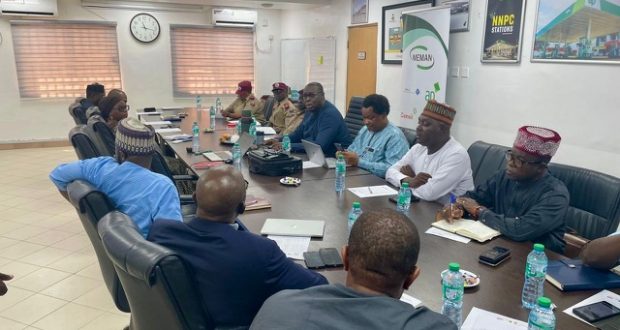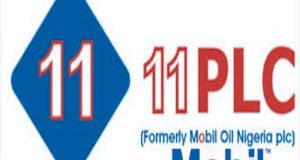To ensure a lasting solution to incessant truck accidents, the Major Energy Marketers Association of Nigeria (MEMAN) is fostering collaboration among regulators, operators, and enforcement agencies to mitigate the increasing number of truck-related accidents on roads.
The Secretary of MEMAN, Clement Isong, disclosed this to the media after a stakeholders meeting in Lagos on how road accidents involving trucks can be mitigated.
He said that this initiative followed an emergency stakeholders’ meeting held to address the alarming rise in truck accidents and explosions on Nigerian roads.
He noted that the session brought together key stakeholders, including the Executive Secretary of the Depot and Petroleum Products Marketers Association of Nigeria (DAPPMAN), the President of the Nigerian Association of Road Transport Owners (NARTO), and MEMAN’s Health, Safety, Security, Environment, and Quality (HSSEQ) committee, representing operators.
Other stakeholders, according to him, included the Lagos Sector Commander of the Federal Road Safety Corps (FRSC) and the South-West Regional Coordinator of the Nigerian Midstream and Downstream Petroleum Regulatory Authority (NMDPRA), representing regulators.
Isong said that the primary objective was to foster collaboration among regulators, operators, and enforcement agencies to mitigate the increasing number of truck accidents witnessed in 2024.
“This meeting is the first in a series of urgent actions aimed at addressing the recent spike in truck accidents and explosions,” he said.
“The analysis of several petroleum tanker-related crashes over the past four months revealed several root causes,” he said.
He mentioned that these included deplorable road infrastructure, inexperienced drivers in oversized trucks, and a lack of truck maintenance, among others.
https://googleads.g.doubleclick.net/pagead/ads?gdpr=0&client=ca-pub-5447639631779846&output=html&h=280&adk=1281606556&adf=3730204730&pi=t.aa~a.1047109607~i.19~rp.4&w=577&abgtt=3&fwrn=4&fwrnh=100&lmt=1717143302&num_ads=1&rafmt=1&armr=3&sem=mc&pwprc=5482369654&ad_type=text_image&format=577×280&url=https%3A%2F%2Ffreshangleng.com%2F34370%2Ftanker-explosions-must-stop–operators-collaborates-with-stakeholders-on-mitigation&fwr=0&pra=3&rh=144&rw=576&rpe=1&resp_fmts=3&wgl=1&fa=27&dt=1717143300724&bpp=2&bdt=11138&idt=3&shv=r20240529&mjsv=m202405290101&ptt=9&saldr=aa&abxe=1&cookie=ID%3Dbb3c5647d5135966%3AT%3D1717143300%3ART%3D1717143300%3AS%3DALNI_MY5RNe_hmcAAmkf1VqGuPo9HypuWQ&gpic=UID%3D00000e3689da9520%3AT%3D1717143300%3ART%3D1717143300%3AS%3DALNI_MbTPvP2x8xvOvB2T6Wq06_nTkn_Gg&eo_id_str=ID%3D302309f97f407a60%3AT%3D1717143300%3ART%3D1717143300%3AS%3DAA-AfjaDh4RicL2iPbfCGZSZQcVB&prev_fmts=0x0%2C729x280%2C270x270%2C577x280&nras=3&correlator=3807566689084&frm=20&pv=1&ga_vid=471429943.1717143292&ga_sid=1717143299&ga_hid=1580719822&ga_fc=1&u_tz=60&u_his=3&u_h=768&u_w=1366&u_ah=728&u_aw=1366&u_cd=24&u_sd=1&adx=217&ady=2297&biw=1337&bih=609&scr_x=0&scr_y=255&eid=44759876%2C44759927%2C44759837%2C31084024%2C95331983%2C31084174%2C95334053%2C95334158%2C95334312&oid=2&pvsid=4431158433867661&tmod=459159238&uas=0&nvt=1&ref=https%3A%2F%2Fwww.google.com%2F&fc=1408&brdim=0%2C0%2C0%2C0%2C1366%2C0%2C1366%2C728%2C1354%2C609&vis=1&rsz=%7C%7Cs%7C&abl=NS&fu=128&bc=31&bz=1.01&ifi=7&uci=a!7&btvi=3&fsb=1&dtd=2125 “Issues included drivers’ mental alertness and attitudinal behavior. Some trucks were fully loaded up to 66,000 liters, far exceeding safe limits. Inadequate maintenance practices led to mechanical (brake) failures,” Isong said.
He stated that the stakeholders proposed several measures for operators to implement, driven by the industry’s commitment to self-regulation.
These measures included more stakeholder collaboration and increased engagement, especially with key stakeholders such as NMDPRA, NARTO, PTD, and FRSC.
He added that driver training, truck maintenance, and fleet renewal were also considered key factors.
Isong said that the meeting also agreed to ensure: “Mandatory annual training for all drivers at FRSC-approved centers, driven by the industry. Marketers are to turn down underage drivers, untrained drivers, and trucks that have not undergone inspection or failed the Safe-to-Load integrity checks at loading bays.
Marketers must insist on biannual comprehensive integrity evaluations for all trucks transporting petroleum products at approved centers. Marketers should insist on phasing out old trucks and replacing them with new ones featuring modern safety measures such as ABS, anti-rollover, anti-spill, anti-skid, speed limiters, onboard computers, and cameras. Trucks over 15 years old should be repurposed for non-hazardous cargo.”
He said that stakeholders also emphasized technology integration in operations, with marketers ensuring that their trucks are fitted with onboard computers and tracking devices. The MEMAN boss said that marketers were also enjoined to ensure the use of intelligent cameras and data from route surveys to enhance safety.
He said that stakeholders also enjoined marketers and transporters to establish centers to monitor truck movements, capable of immobilizing trucks in emergencies. “The control centers should be open 24/7 and are meant to enforce the journey management procedures, including flagging night driving, harsh braking, rest time, unauthorized parking, and speeding,” he said.
Calling for road infrastructure advocacy, the MEMAN boss said that the industry agreed to share again the list of critical roads needing urgent repairs and redesign with relevant authorities.
On public awareness campaigns, Isong said that stakeholders agreed to conduct regular sensitization programs for drivers on safe driving practices.
“The public is strongly advised to avoid scooping fuel when there is a truck accident,” he said.
On Bottom Loading Systems, he said that marketers were to advocate for the introduction of bottom loading to reduce vapor emissions and enhance safety.
On earthing, he said that stakeholders agreed that stations and drivers should ensure earthing and continuity in earthing cables/hoses during discharge at filling stations.
Isong said that stations and drivers must avoid product discharge during thunderstorms.
He noted that stakeholders also considered driver welfare a key factor in ensuring safety, saying, “Transporters need to improve drivers’ welfare to ensure the safe handling of trucks.”
Speaking further, the MEMAN boss said that the industry was committed to continuing these collaborative efforts to ensure safer road transportation of petroleum products.
“Truck accidents and explosions must stop, and through these comprehensive measures, industry operators aim to significantly reduce the incidence of such catastrophic events,” Isong said.
Speaking, Mr. Ibrahim Dimowo, Assistant Director/Head DSSRI, Southwest Zone, NMDPRA, said actions before the authority included regulatory revisions.
Dimowo said that these included updates and enforcement of truck specifications and loading limits with a focus on safety.
On monitoring and evaluation, he said that the authority would approve and implement new technologies for incident detection and monitoring.
On compliance enforcement, Dimowo said that there should be clear consequences for non-compliance with safety regulations.
Emphasizing the need to ensure that all trucks are registered and assigned specific ullage permits, he said that there was a need to state what the tank size for petroleum products should be and ensure compliance.
Corroborating, Corps Commander Patrick Davou of FRSC, Lagos State Sector Command, emphasized the need for strict enforcement of pre and post Safe-to-Load (STL) integrity inspections on trucks.
On driver certification and road safety initiatives, Davou said there was a need to verify driver qualifications during STL inspections and to collaborate on the 5-pillar road safety initiatives.
He called for proper classification of drivers’ licenses for transporting hydrocarbons.
Stakeholders in attendance included the Corps Commander, Mr. Patrick Davou, FRSC – Corps Commander, Lagos State Sector Command, Mr. Ibrahim Dimowo, Assistant Director/Head DSSRI, Southwest Zone, NMDPRA, Olufemi Adewole, Executive Secretary, DAPPMAN, and Alhaji Lawal Othman Yusuf, President, NARTO.
Others were Mr. Clement Isong, CEO, MEMAN, and Mr. Gabriel Orukpe, Chairman, MEMAN HSSEQ Committee.
 Financial Energy Review
Financial Energy Review





